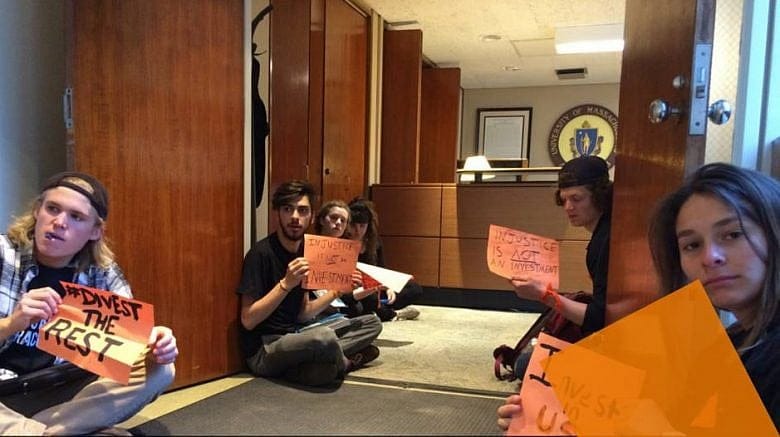UMass dumping fossil fuels cheers greens but may prove costly

BOSTON – The University of Massachusetts became the first major public university system in America to completely divest fossil fuel-related investments, a decision that was received with glee by environmental activists on campus.
"WE WON!!!!!" proudly declared a Facebook post from the driving force behind the movement urging the action, Divest UMass, immediately after the vote that charted the course. The activists crowed that decision "was a direct result of the immense power and support of student and community organizing."

